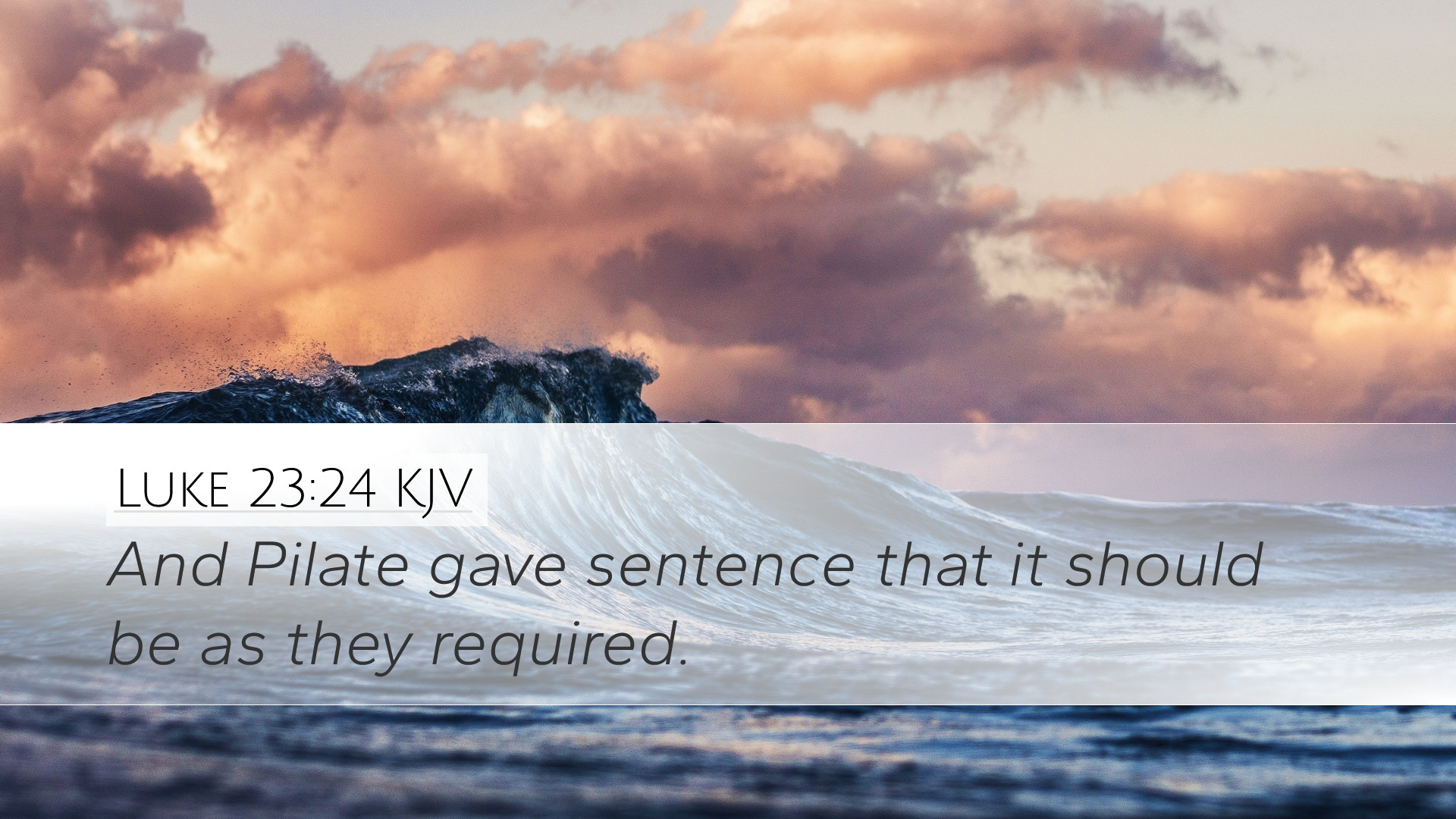Commentary on Luke 23:24
Verse Text: "And Pilate gave sentence that it should be as they required."
This verse represents a pivotal moment in the narrative of Christ’s passion, highlighting the role of the Roman governor, Pontius Pilate, in the trial and subsequent condemnation of Jesus. In synthesizing insights from Matthew Henry, Albert Barnes, and Adam Clarke, we gain a deeper understanding of the theological and historical implications of this moment.
Contextual Significance
This verse occurs during a crucial transition in the Gospel of Luke, where the trial of Jesus is reaching its climactic conclusion. Pilate finds himself caught between the pressures of the Jewish leaders, who desire the execution of Jesus, and his own sense of justice, which he struggles to uphold.
Pontius Pilate's Role
Matthew Henry highlights Pilate’s weakness and moral cowardice. Despite recognizing the innocence of Jesus, Pilate capitulates to public pressure. Henry comments on the irony of a Roman governor, who represents law and order, yielding to the tumult of the crowd:
- Public Pleading: The demands of the multitude sway Pilate, showcasing the vulnerability of authority to popular opinion.
- Judicial Injustice: Despite his better judgment, Pilate's decision epitomizes the miscarriage of justice, often experienced in human systems of governance.
Theological Implications
Albert Barnes emphasizes that Pilate's sentence fulfills the necessity of Scripture and God's sovereign plan for redemption through the death of Christ. He notes that:
- Fulfillment of Prophecy: This act is seen as a fulfillment of the prophecies concerning the suffering Messiah (Isaiah 53) who would bear the sins of many.
- Divine Providence: While humans perpetrate injustice, God’s overarching plan is accomplished through these very actions.
Historical Reflection
Adam Clarke reflects on the historical reality of Roman governance and Jewish leadership dynamics. He observes how:
- Cultural Tensions: The relationship between Romans and Jews was fraught with tension, and Pilate's actions should be understood in this context.
- Political Expediency: Pilate's capitulation can be viewed as a politically expedient choice to maintain peace in a volatile situation.
Lessons for Today
This moment in Luke 23:24 carries profound lessons for contemporary believers, particularly in understanding the complexities of leadership and moral decision-making.
- Leadership Integrity: Leaders are called to stand for truth, even when it is unpopular.
- Courage in Faith: The followers of Christ are reminded to remain steadfast and courageous in the face of societal pressures.
Conclusion
In conclusion, Luke 23:24 serves as a significant moment that encapsulates the tension between human authority and divine sovereignty. The insights from these public domain commentaries provide a rich tapestry for pastors, students, theologians, and scholars. Understanding the interplay of these elements invites deeper reflection on justice, leadership, and the ultimate purposes of God in the crucifixion of Christ.


